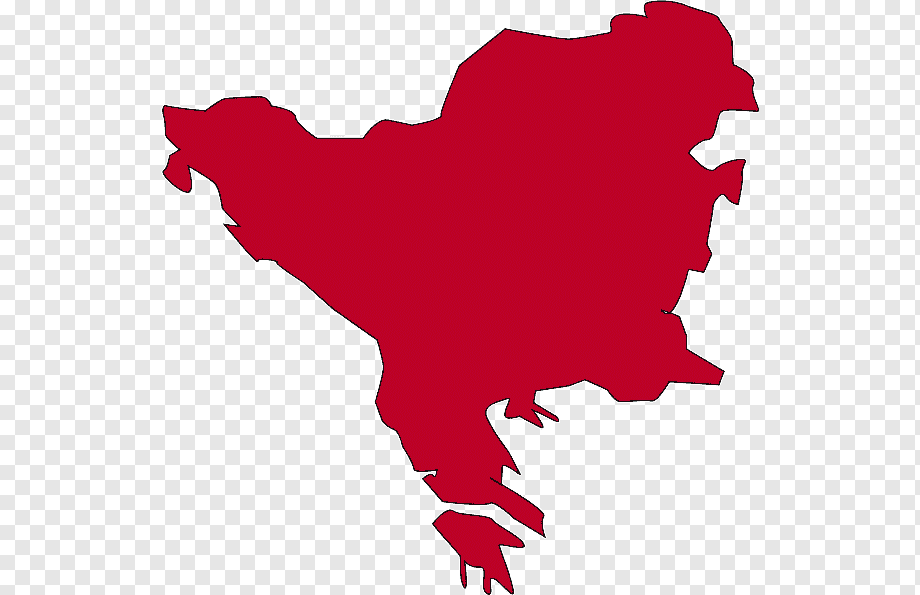
WWW - Internet Balkans
The World Wide Web, or WWW, from the very beginning was actually just an electronic version of a bulletin board, book, newspaper, magazine, i.e. traditional edition, consisting of pages. The understanding of the Internet as a "directory of sites" has begun to change only recently.
From the very beginning, you needed a browser to browse the web. The history of these programs is inextricably linked with the history of the Internet. Dinosaurs remember Netscape and its rivalry with Microsoft Internet Explorer, its fascination with Firefox and the advent of Google Chrome. However, over the years, the emotions of the browser wars have subsided. Mobile users pretty much don't even know which browser is showing them the internet, and it doesn't really matter to them. It should work and that's it.
However, even if they do not know what browsers they use, they still use an application that provides a more or less neutral Internet. The same cannot be said for most other smartphone apps that offer their services and content "over" the Internet. The network here is a kind of fabric that connects various applications. Identification of the Internet with the WWW directory is completed.
Taking a step into the future that is happening before our eyes, with the network - in which we move not only virtually, but also quite physically, into the thicket of the Internet of things - we more and more often communicate not through mouse movements, clicks and taps on the keyboard, but voice, in terms of movements and gestures. The good old WWW is not so much disappearing as it becomes one of the many components of our virtual life, a service that we use under certain circumstances and conditions. It is no longer synonymous with the Internet as it was understood fifteen years ago.
End of choice - time to impose
Twilight, or rather the degradation of the World Wide Web, is largely associated with a trend away from Internet neutrality, although it's not necessarily and not quite the same. You can imagine a WWW that has nothing to do with neutrality, and a neutral Internet without the WWW. Today, both Google and China offer users services that are in complete control of which version of the Internet they deem best for themselves—whether it be the result of a behavioral algorithm or a political ideology.
Competing browser logos
The Neutral Internet is now defined as open cyberspace, a digital context in which no one is singled out or administratively blocked. The traditional web, in fact, did just that. In theory, any page can be found in a content search engine. Of course, due to the competition between the parties and, for example, the search algorithms introduced by Google for the "most valuable" results, this theoretical equality has become strongly ... theoretical over time. However, it's hard to deny that Internet users wanted this themselves, not content with the rather chaotic and random search results in early web search tools.
Advocates of online freedoms recognized a real threat to neutrality only in gigantic closed cyberspaces that mimic the public sphere, such as Facebook. Many users still consider this social network to be a neutral space with free public access for everyone. Indeed, to some extent, the functions, let's say, public ones, are performed by Facebook, but this site is clearly closed and strictly controlled. This is especially true for users of the Facebook mobile application. Moreover, the blue application running on the smartphone begins to see and influence other aspects of the user's Internet life. This world has nothing to do with finding and choosing the sites we want to visit, as it was in the good old WWW. “It” imposes itself, pushes and selects the content that we want to see according to the algorithm.
Internet fencing
Experts have been promoting the concept for several years now. Balkanization of the Internet. This is usually defined as the process of recreating national and state boundaries in the global network. This is another symptom of the decline of the World Wide Web as a concept that was once understood as a worldwide, supranational and supranational network that connects all people without restrictions. Instead of a global Internet, the Internet of Germany, the network of Japan, the cyberspace of Chile, etc. are being created. Governments explain the actions of creating firewalls and network barriers in different ways. Sometimes we are talking about protection against espionage, sometimes about local legislation, sometimes about the fight against the so-called.
The firewalls used by the Chinese and Russian authorities are already well known in the world. However, other countries are joining those who are ready to build borders and dams. For example, Germany is lobbying for plans to create a European communications network that would bypass US nodes and prevent surveillance by well-known American National Security Agency of the Supreme Administrative Court and her lesser known British counterpart - GCHQ. Angela Merkel recently spoke of the need to negotiate “primarily with European network service providers who will ensure the safety of our citizens so that emails and other information do not have to be sent across the Atlantic and a communications network can be built.” within Europe."
On the other hand, in Brazil, according to information recently published in IEEE Spectrum, the country's president, Dilma Rousseff, says he wants to lay "submarine cables that won't go through the United States."
Of course, all this is done under the slogan of protecting citizens from surveillance by US services. The problem is that isolating your own traffic from the rest of the network has nothing to do with the very idea of the Internet as an open, neutral, global World Wide Web. And as experience shows, even from China, censorship, control and restriction of freedom always go hand in hand with the “fencing” of the Internet.
From left to right: founder of the Internet Archive - Brewster Kahle, father of the Internet - Vint Cerf and creator of the network - Tim Berners-Lee.
People are being manipulated
Tim Berners-Lee, the inventor of the web service and one of the strongest advocates of net neutrality and openness, said in a press interview last November that one can feel the “unpleasant” atmosphere on the Internet. In his opinion, this threatens the global network, as well as commercialization and attempts at neutrality. flood of false information and propaganda.
Berners-Lee partially blames major digital platforms like Google and Facebook for spreading disinformation. They contain mechanisms for distributing content and advertising in such a way as to attract the maximum attention of users.
draws the attention of the creator of the site.
This system has nothing to do with ethics, truth or democracy. Attention focus is an art in itself, and efficiency itself becomes the main focus, which translates into either income or hidden political goals. That is why Russians bought ads targeted at American voters on Facebook, Google and Twitter. As analytical companies later reported, incl. Cambridge Analytica, millions of people could be manipulated in this way "behavioral microtargeting».
Berners-Lee recalled. In his opinion, this is no longer the case, because at every turn there are powerful people who control free access to the network in dozens of ways and at the same time pose a threat to innovation.

